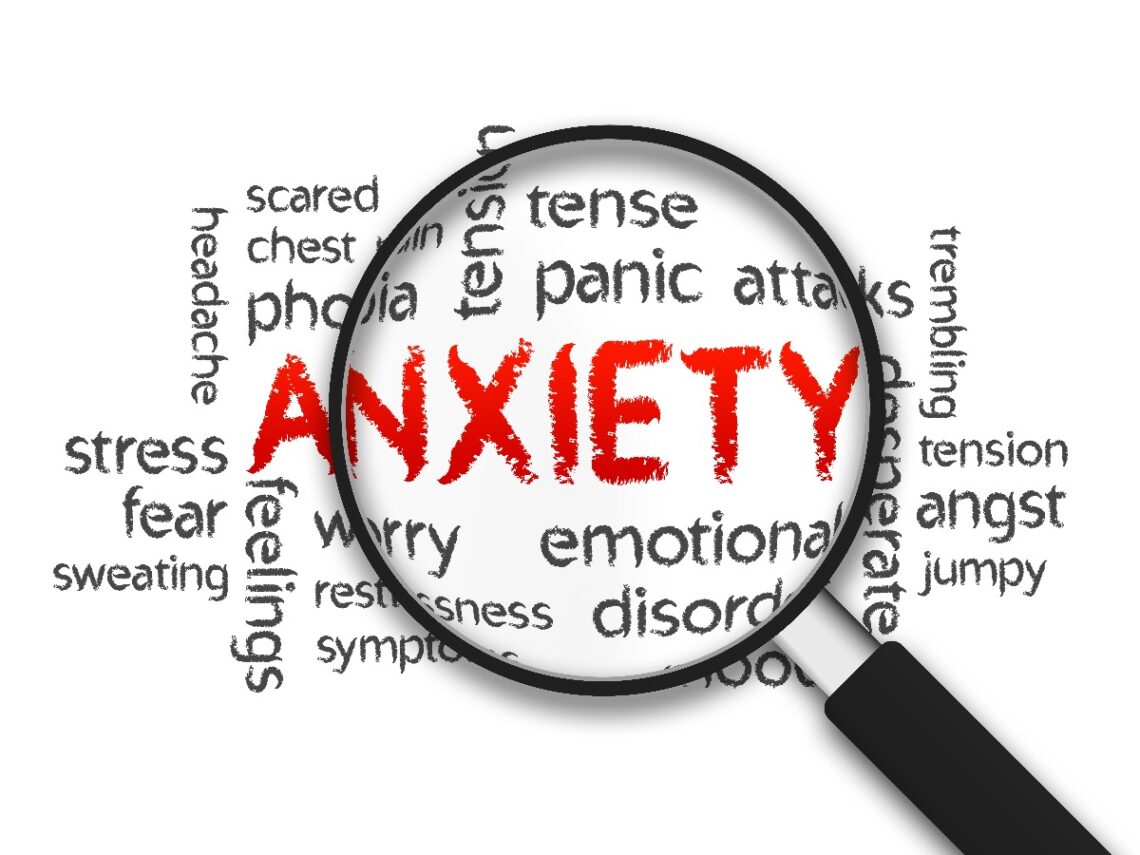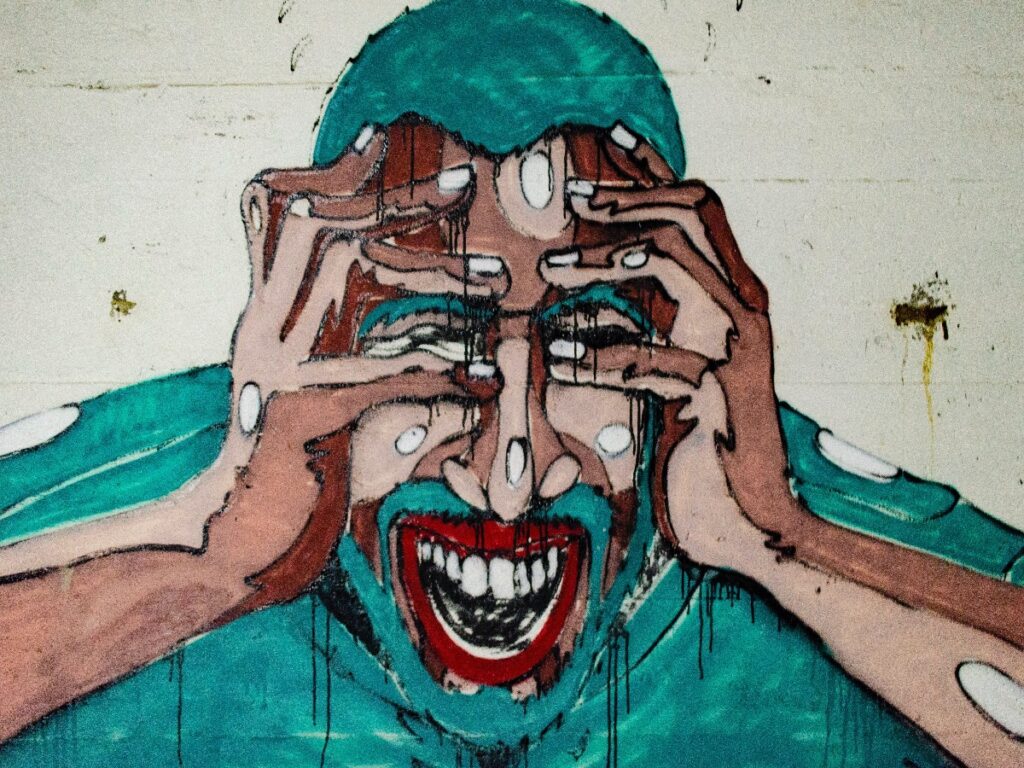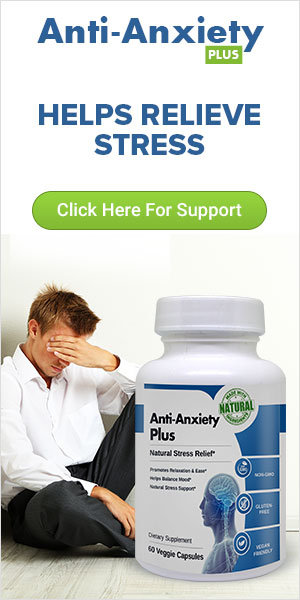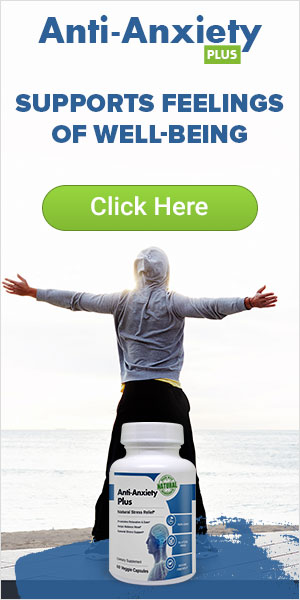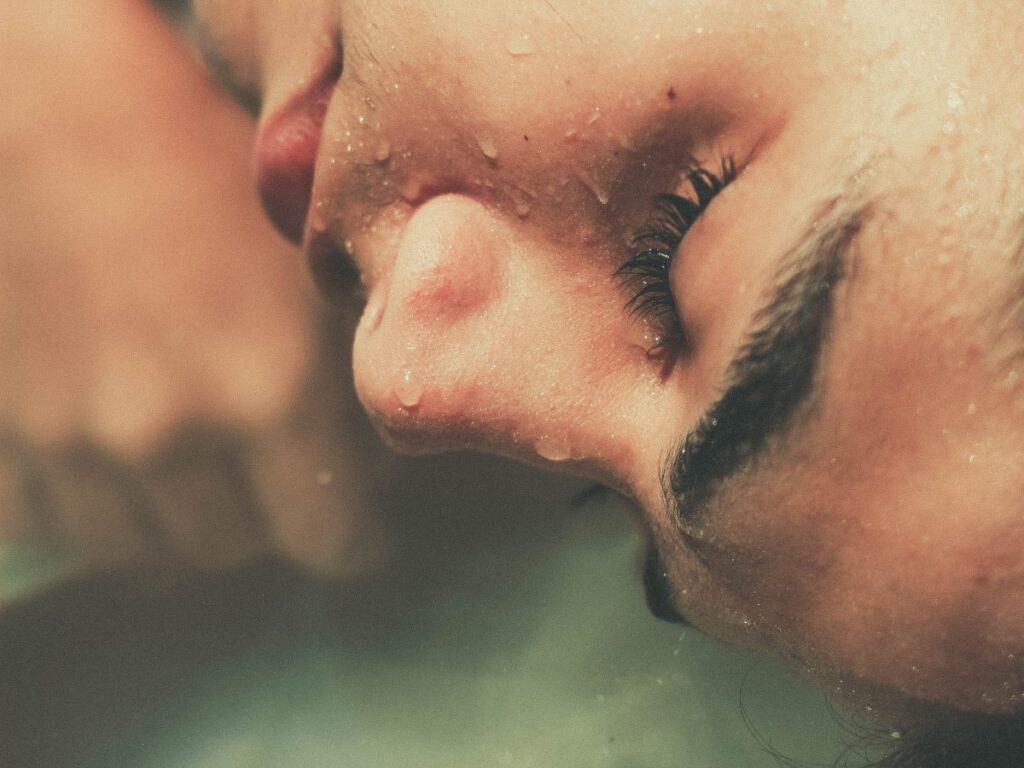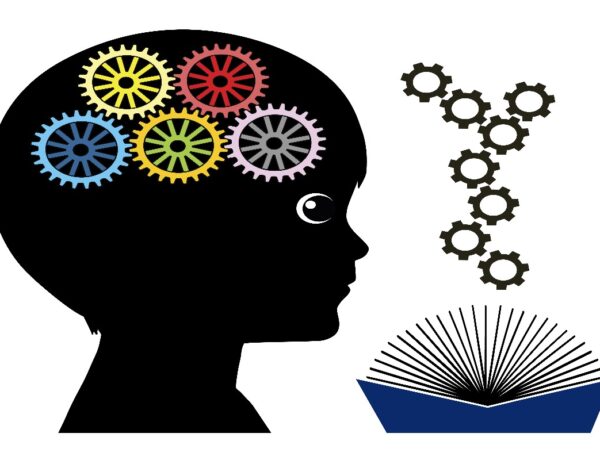
Anxiety is the most common mental disorder. It is known to manifest by mood disturbance, thinking disorder, disinclination, social phobia, obsessive-compulsive disorder, acute stress disorder, and post-traumatic stress disorder.
Anxiety is mostly associated with restlessness, feeling high-spirited, getting fatigued quickly, sleep disturbances, poor concentration or blank mind, muscle tension, and irascibility. Anxiety etiology may include stress, genetics, environmental factors, or disrupted modulation within the central nervous system.
We often get anxious when under threat. Mostly through our thoughts, feelings, or physical sensations.
As humans, we have developed ways to help protect ourselves from danger, as all animals do. Our body reacts by releasing adrenaline and cortisol, which make our muscles relax or move involuntarily. Sometimes referred to as the “fight, flight or freeze” response.
Is Anxiety a mental health problem?
Anxiety can be tagged as a mental health problem if it affects one’s ability to function as expected. Example of such are:
- Strong or long-lasting anxious feeling,
- Disproportioned fear or worry over situations,
- Distressing concern over uncontrollable situations,
- Regularly experiencing symptoms of anxiety, such as panic attacks, and/or
- Difficulty finding interest in simple things.
Anxiety Disorders
Anxiety is the brain’s way of reacting to stress and alerting you about the potential danger ahead.
Everyone feels anxious now and then. For example, you may worry about a problem in your relationship, work, school, or while contemplating a critical decision.
According to the national survey’s estimation, nearly one in five American teenagers had experienced an anxiety disorder in the past.
Sometimes anxiety seems fine. But anxiety disorders are in different forms. There is a collection of mental illnesses that are responsible for constant and enormous anxiety. Overwhelming anxiety can make you skip or avoid school, work, family, and other social situations that might make one quite susceptible to anxiety symptoms.
With adequate treatment, anxiety disorders can get effectively managed.







Classification of Anxiety Disorders
- General anxiety disorder: The feeling of excessive, illogical worries, strain for no reason.
A sequence of excessive worry about a variety of issues, often accompanied by physical symptoms on most days for at least six months, such as dizziness, muscle tension, and palpitation of the heart.
- Panic Attack: An illusionary type of fear, where imagination takes over the reality of things. They are mostly sudden, with intense episodes of heart-palpitations. An example of such is “the feeling of falling into the lagoon while looking down a bridge.”
A panic attack has symptoms such as excessive sweating, acute chest pain, and palpitations, possibly resulting in suffocations or likely cardiac arrest.
- Social Anxiety Disorder: Social anxiety disorder is a common mental disorder that mostly occurs in social situations with the feeling of significant anxiety or when performance becomes necessary, especially in public speaking.
Sometimes called social phobia, it is an overwhelming feeling or worrisome consciousness about regular social situations—obsessive worry about being judged, embarrassed or ridiculed. The tough part is asking for help.
- Unusual Phobias: An intense feeling of fear of a specific object or situation, or substantial anxiety caused by various conditions, like witnessing a fire outbreak, an accident from an over-speeding vehicle, fear of heights, or flying. This fear could lead to the elusion of ordinary situations in its extremity.
- Agoraphobia: Intense fear of open spaces may seem hard to escape or get help if an emergency occurs. An example is, feeling anxious when on an airplane, public transportation, or standing in a queue.
- The Anxiety of Separation: Anxiety disorders from separation can happen to anyone; kids, partners in relationships, marriage, or business. The fear of loneliness or having a void in one’s life can cause anxiety or fear when a partner, friend, or acquaintance leaves.
Another characteristic of anxiety of separation is a constant worry that something terrible may happen to your loved one.
- Selective Mutism: Almost similar to stammering but probably worse, as no sound is uttered, let alone stutter.
It’s termed a medical condition that impacts the physical structures responsible for speech, such as voice loss due to injury, paralysis, or illness of the larynx.
Anxiety can also trigger temporary mutism from shocking news to horrifying discoveries.
- Addiction-induced Anxiety Disorder: Indiscriminate use of certain medications, addiction, or withdrawal from certain drugs or other dependencies can trigger some symptoms of anxiety disorder.
Symptoms of Anxiety Disorder
Excessive worry or fear is the main symptom of anxiety disorder.
Anxiety disorders can bring about dyspnea, asphyxia, sleep disturbances or insomnia, and poor concentration. The type of anxiety disorder will determine your specific symptom.
14 common symptoms of anxiety disorder:
- Restlessness
- Constant fear
- Insomnia and sleep-related problems
- Tingling hands or shaky feet
- Dyspnea (shortness of breath)
- Fast breathing (hyperventilation)
- Palpitations of the heart
- Dryness of the mouth
- Nausea
- Muscle rigidity
- Dizziness and lightheadedness
- Racing thoughts (rumination)
- Poor concentration
- Fear of past events, places or objects







Causes and Risk Factors of Anxiety Disorder
The root cause of anxiety disorder is entirely unknown to researchers and psychologists. The likely reasons and feedback from researches are what is widely accepted internationally.
Some likely Causes of Anxiety Disorder;
- Genetics/Heredity: Anxiety disorders can be hereditary and possibly run in families through generations.
- Brain problems: A few research suggest that anxiety disorders may be due to poor communication in the brain concerning the control of fear and emotions.
- Environmental related stress: Some Life events often linked to anxiety disorders include, but are not limited to, childhood abuse or violence.
- Addiction/Drug dependence: Though anxiety disorder, alcohol, and substance abuse are somewhat alike, specific anxiety symptoms can be hidden with certain drugs to decrease or control particular symptoms.
- Medical conditions: Some symptoms similar to anxiety disorders, such as heart, lung, and thyroid conditions, can cause or worsen anxiety symptoms. It’s essential to get a full physical examination to rule out other medical conditions when talking to your doctor about anxiety.
Risk Factors of Anxiety Disorder
Risk factors are the things that make you more likely to develop an anxiety disorder. Some risk factors are subject to change.
8 Risk factors of anxiety disorders include:
- Mental health disorder: Mental health disorder like depression raises one’s risk of disease from anxiety.
- Sexual assault: Sexual assault or abuse about neglect during childhood could be linked to anxiety disorders later in life.
- Trauma: Fighting post-traumatic events increases the risk of post-traumatic stress disorder.
- Negative life events: A stressful or adverse life event, such as losing a parent in early childhood, increases one’s risk of anxiety.
- Chronic health condition: Constant worry about unstable health or the health of a loved one can cause overwhelming anxiousness.
- Substance abuse: Excessive alcohol and/or drug dependence could heighten the chances of developing an anxiety disorder. Some people are hooked on a substance that hides or eases anxiety symptoms.
- Childhood Shyness: Social anxiety can be linked to shyness and withdrawal from unfamiliar people and places in teens and adults during childhood.
- Low self-esteem: Having negative perceptions about yourself may lead to social anxiety disorder.
Anxiety Disorder Diagnosis
Psychologists and mental health specialists are trained to diagnose, deal with symptoms, and medical history of anxiety thorough examination and questioning to know more about the possible cause(s).
Tests may be carried out to discover other health conditions that might be causing your symptoms. Anxiety disorders, even through lab tests, cannot be correctly diagnosed.
A mental health specialist’s service may be needed to determine the real reason for how you’re feeling or if the natural right does not correlate with the state of mind or feeling.
Questioning tools are also used to determine the degree of anxiety disorder, considering the time frame of the symptoms and the intensity of the diagnosis. It’s essential to let your doctors or counselors know if your anxiety impacts your everyday tasks at home, work, or school.







How to manage Anxiety Disorder Symptoms
Tips on how-to lessen or control anxiety disorder symptoms are outlined below:
- Understand your disorder: Adequate information fosters the preparedness to manage symptoms and challenges along the way. Feel free to ask your doctor questions about your general mental health.
- Keep to your treatment plan: Inconsistency in medication can cause unpleasant side effects and can even trigger more anxiety symptoms.
- Slow down on caffeine and carbonated drinks intake: For example coffee, tea, cola, energy drinks, and chocolate contain excess sugar and caffeine that alters mood. This sometimes cause symptoms of anxiety disorders in their extremity.
- Eat good food and exercise regularly: Simple aerobic activities like walking, jogging, and biking help release brain chemicals that reduce stress and improve mood.
- Get better sleep: Sleep problems/insomnia and anxiety disorder are quite connected. Getting proper rest should be of high priority. Have a relaxing bedtime routine. Talk to your doctor if you continuously have sleep troubles.
- Manage your stress: Part of your anxiety disorder treatment plan is stress management.
Doing things like meditation, or some sort of yoga, unwinding after a stressful day, will make things work better.
- Keep a diary: Keeping thoughts, intentions, plans, and to-do lists before the due date helps reduce the stress of being unorganized, so you’re not tossing and turning with anxious thoughts.
- Manage pessimistic perceptions: Being optimistic instead of giving in to worries, can help in reducing symptoms of anxiety. Cognitive-behavioral therapy can teach you how to redirect your thoughts.
- Get together with friends: Whether in person, on the phone, or through social connections, getting together with other people will help you get over the stress of anxiety and ensure good health. Most people find it helpful and uplifting to talk to others experiencing the same symptoms and emotions. Self-help or support groups are avenues to share concerns and achievements with others who have had the same experience.
Note: Ask a Doctor before taking any herbal remedies or over-the-counter drugs. This will prevent worsening the case through excess intake of toxic content.
Anxiety Disorder Perspective
Anxiety disorder can be quite challenging, frustrating, and stressful to deal with, as constant fear and worry can wear one out.
After talking to the doctor, the first step towards recovering from worry is to try letting go of all connected reminders whatsoever.
Getting the right treatment that works may take time; several kinds of treatment may be recommended for those with multiple anxiety disorders.
A combination of medicine and counseling is appropriate for most people with an anxiety disorder. Managing symptoms of anxiety could also come with proper treatment and care.
Panic Attacks
The WebMD defined panic attacks as a period of intense fear or the feeling of doom developing over a short time frame and associated with at least four of the listed symptoms:
- Sudden fear
- Palpitations (increased heartbeat)
- Profuse sweating
- Trembling (or shaky feet)
- Shortness of breath (asphyxia)
- Choking
- Chest pain (related pneumonia symptoms)
- Nausea (feeling of wanting to vomit)
- Dizziness and sleepy feeling
- A sense of detachment from reality
- Fear of death
- Numbness or lifeless feeling
- Chills or goose pimples
Panic attacks and panic disorder are different phenomena. Panic disorder involves recurrent panic attacks and fears about future attacks and avoiding triggers of such situations, like memories of an attack.







General Anxiety Disorder
General anxiety disorder is an excessive and unrealistic worry associated with at least three of the following symptoms:
- Nervousness
- Exhaustion (or fatigue)
- Difficulty concentrating (engrossment)
- Irritability or explosive anger
- Muscle tension
- Sleep disturbances
- Personality changes, such as becoming less social
Phobic disorders
Phobic issues are exceptional, determined, and intermittent dread of specific articles (for example, snakes, arachnids, blood) or circumstances (for example, heights, talking before a gathering, open spaces). These introductions may trigger a fit of anxiety. Social fear and agoraphobia are instances of phobic issues.
Phobia: A related problem with Anxiety
What are phobias?
A phobia is an irrational reaction to fear. People who have phobia related problems may experience a deep sense of dread or panic when they encounter the source of their fear. It could be the fear of certain places, situations, or objects.
The effect of a phobia can range from minor to severe, depending on the root cause of the anxiety. People with phobias often realize their fear is unreasonable, though they feel helpless.
About 19 million Americans have a phobia that causes them difficulty in some area of their lives. You should seek your doctor’s help if you have a fear that prevents you from living your life to the fullest.
Causes
Some factors, such as environmental or genetic related, can cause a phobia.
Having a close relative who has an anxiety disorder keeps us at risk of developing phobia ourselves.
- Agoraphobia
Agoraphobia is a dread of open spaces or circumstances that you can’t escape from. The word itself alludes to the “dread of open spaces.” People with agoraphobia dread being with a large group. Those with constant medical issues may fear they will have a health-related crisis in an open space or where no assistance is accessible.
- Social fear
Social fear is similar to social nervousness issues. It’s extreme stress over social circumstances, and it can prompt self-segregation. Individuals with social fear frequently make a special effort to maintain a strategic distance from open circumstances.
- Different sorts of fears
Numerous individuals despise certain circumstances or items. However, fear will, in general, meddle with day to day life. Here are a few more noteworthy measures of the most broadly perceived ones:
- Glossophobia
This is the dread of talking in front of an audience. Glossophobia triggers the speaker’s anxiety while speaking publicly in front of a group of known people, or a close group of friends. But it may be comfortable if they talk with strangers. It can be cured with therapy or medication.
- Acrophobia
This is the fear of heights or the natural fear of falling and being injured or killed. It occurs when a concern is taken to an extreme, possibly due to a generalization of response to fear, or traumatic experience.
Individuals with this fear stay away from mountains, or very high floors of structures.
Anxiety Disorder Control
Natural Remedies for anxiety
Natural remedies are solutions that are generally safe to use alongside more conventional medical therapies to help solve anxiety and related medical issues.
However, a change in diet and intake of natural supplements can change how anti-anxiety medications work, so consultation with a doctor is necessary before trying these solutions. The doctor may have other natural remedies to suggest also.
Meditation
Meditation can assist with easing back wandering thoughts, making it simpler to oversee pressure and nervousness. A wide scope of contemplation styles, including care and reflection during yoga, may help.
Another way of getting yourself into the present moment is through meditation.
If you choose to meditate in the conventional sense, Ongaro suggests, “starting with a minute’s stillness and relaxation to get the habit going,” during which you continue to concentrate on your breathing.
If sitting in complete silence seems impossible for you, try a guided meditation app, like Calm or Headspace.
Wei suggests integrating walking exercise into the everyday routine for people who are constantly on the hunt.
“If you’re walking to the subway or around the city, particularly for New Yorkers, I like to recommend walking meditation, where you’ll catch your breath with your steps,” she says. “Start breathing in for five steps and then out for 8 to 10 steps.”
Exercise
Exercise is a bit of a cure-all, because your physical, emotional, and mental well-being will benefit. Daily exercise may have long-term implications for your well-being, just one intense workout will help alleviate anxiety symptoms for hours.
A 2012 research by the University of Georgia indicates that both aerobic and resistance exercises can alleviate symptoms for those with a generalized anxiety disorder.
Exercise is an ideal way to work through the stress of anxiety, and research from the society of behavioral medicine tends to support this. A 2015 study of 12 randomized controlled trials showed that exercise could be an anxiety treatment.
The review, however, warned that only higher-quality research will decide how successful it is.
Relaxation exercises
Some people contract their muscles unconsciously and clench the jaw in reaction to anxiety, which might aid with radical relaxation exercises.
Lay down in a relaxed position and slowly constrict and relax every group of muscles, start with the knees, and work up to the shoulders and jaw.
Breakfast rich in proteins
One of the first things Dr. Marlynn Wei, a psychiatrist educated at Harvard and Yale, does when she encounters a new client telling them about their lifestyle, including their diet.
Since dips may feel a lot like fear in your glucose levels, Wei emphasizes that you should never miss a meal and that it is best to start your day with a high-protein breakfast.
Time management strategies
Most people are anxious because, at one point, they have too many obligations, which may include family, education, and health-related activities.
Maintaining a plan for the next step required will help to keep the anxiety at bay.
Effective time management strategies can help people focus on one job at a time.
Book-based schedules and online calendars can help because they can endure the temptation of multitasking.
Most people feel that breaking down big projects into manageable steps can allow them with less tension to complete those tasks.
Writing
Having found a way of communicating anxiety will make it feel more manageable.
Some research suggests journaling and other types of writing can help people cope with anxiety better.
For example, a 2016 study showed creative writing could help kids and teens relieve anxiety.
Aromatherapy
Smelling calming herbal oils can help alleviate tension and anxiety.
To certain people, some scents work better than others, so try playing with different choices. Lavender can be especially helpful.
Research in 2012 examined the impact of lavender aromatherapy on insomnia among 67 women aged 45–55.
Studies suggest that aromatherapy can, in the short term, reduce heart rate, and help to relieve long-term sleep problems.
Cannabidiol oil (CBD)
CBD oil is cannabis, or marijuana, plant derivative. Unlike other forms of marijuana, CBD oil does not contain tetrahydrocannabinol, or THC, the “high” substance.
For many alternative healthcare shops, CBD oil is readily available without a prescription. Doctors may also be able to prescribe the oil in places where medicinal marijuana is legal.
Herbal teas
Most herbal teas promise to assist with anxiety and make sleep easier.
Most people find the tea making and drinking cycle calming, but other teas can have a more direct effect on the brain, resulting in decreased anxiety.
Results from a study in 2018 indicate that chamomile can alter cortisol levels, a stress hormone.
Herbal supplements
Lots of herbal supplements, like herbal teas, claim to reduce anxiety.
Nevertheless, those arguments are not backed by empirical evidence.
Works with a doctor who has experience of herbal supplements and their possible interactions with other medications are important.
Time with animals
Pets offer encouragement, care, and companionship.
Studies released in 2018 reported that animals would help people with different mental health conditions, including anxiety.
Although many people prefer cats, dogs, and other small mammals, people with allergies would be surprised to hear that the pet must be fluffy.
A research carried out in 2015 found that cricket treatment could improve psychological well-being in the elderly.
Spending time with animals will also reduce trauma-related anxiety and stress.
Results of systematic analysis in 2015 indicate that spending time with horses and grooming will mitigate some of those impacts.







Related Articles:
How to Find Inner Peace, 15 Simple Things You MUST Start Doing Today
Failure is Great, 14 Reasons Why you need to fail before you succeed
182 Simple Motivational Workout Quotes that will surely keep you focused
Do you want to be TIKTOK FAMOUS in 90 Days? (Check out these 9 proven ways)
How to Accept And Embrace Change in difficult Situations (15 helpful tips)
Do you want to Retire Early? You Need To Know These Things Before You Make That Decision
Apply Now -10 Reasons You To Start Applying For Scholarships
Top 15 Learning Strategies To Understand Faster And Memorize Better
175 Ultimate Motivating short quotes to inspire you for greatness
15 Weight Loss Tips you need to know, it can only get better from here
You need these106 Monday motivation quotes to get the best out of the week
Top Pros And Cons of Social Media Platforms, How to use it to your advantage
Top 167 Positive Energy and Positive Vibes Quotes, you need this.
7 Exciting Reasons Why You Should Never Give Up On Your Dreams
Top 132 Family Love Quotes that are Exciting and Inspirational
8 Things That Are Just Not Worth Your Time, Let’s Take Care Of These Things Quickly
6 Simple Ways To Attracting Amazing People Into Your Life
135 Inspirational Leadership Quotes, You Need This If You Want To Become A Great Leader
88 Most Inspiring and Love Quotes for Christmas
Want to Live a Happy Life? Here are 13 Things to Focus On
85 Inspiring Love Relationship Quotes, Let’s build a greater bond
Ultimate Positive Mindset: Here are 15 ways to achieve it
22 Exciting Healthy Eating Lifestyle tips to keep you on track
Positivity and Negativity: 11 Reasons to quickly Avoid Negative People
Effective Skill Development,15 Ultimate ways to achieve it
Effective Study Strategy Techniques, 15 keys you need to activate
Team Motivation Strategies,10 Ultimate Tips To Keep Your Team Motivated
15 Ultimate Good Habits for Successful and Happy Life
These 9 Highly Effective Study Habits are Needed for a Successful Life
16 Ways to Stop Procrastinating, this is the ONLY way out
Life Improvement: 15 Small and easy ways to improve your life in 90 days
How to study smarter and not harder:14 Ultimate study strategy tips
Tracking Progress: You need to adopt all 12 Simple Ways to Track Progress Towards Your Goals
Anxiety (All you need to know): Managing and controlling Anxiety
Long Term Goals: You need these 10 proven ways to succeed
Motivation: 7 easy and applicable ways to stay motivated
Better Sleep: Sleep like a baby with these12 proven tips
Depression: All you need to know and getting out successfully
The needed and simple Time Management Skills for College Students
Vegan vs Vegetarian: Which is better? Everything you need to know
The FEMINISM MOVEMENT: All you need to know
7 Facts About The Law Of Attraction And 7 Practical Ways To Make It Work For You
